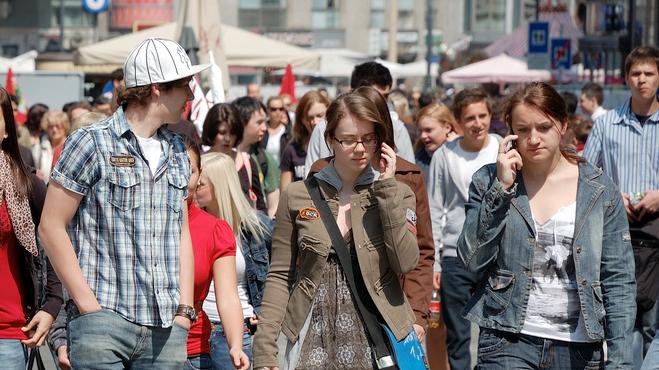So why aren’t young Americans spooked by NSA surveillance?
Young people are very aware of privacy. But they seem to worry more about what their teachers, parents, coaches and peers know about their online activities than what the US government might have on them.
"The state, for them, is an abstraction," says Zeynep Tufekci of the University of North Carolina at Chapel Hill.
"It doesn't even cross their minds that much, and why should it? There's no interaction between them and their everyday lives and some database in Utah which might be scooping up every click."
Tufekci, who studies the intersection of technology and society, says her students read George Orwell's totalitarian dystopia "Nineteen Eighty-Four" in school, just as their parents did. But they don't live in a totalitarian state with people being dragged off to prison in the middle of the night, so they don't relate to it.
"'Nineteen Eight-Four' is misleading," says Tufekci. "If there was really, truly state terror, they would be worried, too. I think part of the reason they're not worried is they live in a modern democracy. They feel like citizens. The threats posed by NSA surveillance are a lot more subtle."
Older folks in the US remember Watergate and other spying scandals, so they can more easily imagine government abuses. "Maybe our generation is fighting the last battle," Tufekci wonders, "and the new generation is not yet waking up to the emerging battle."
Tufekci says we have the advantage of not living in an authoritarian or totalitarian state. "The disadvantage is that might lead us to complacency, to assuming our government would never do anything wrong with this kind of data."
Tufekci argues governments or companies could use metadata in ways that discriminate, or shape or track behavior, or simply violate our basic privacy.
She points out that in places where people have experienced the strong arm of the state, like her native Turkey or in China, young people are very suspicious and aware of the surveillance affecting them. When she teaches the facts of NSA surveillance to her American students, they don't like what the government is doing.
"The idea that they're just fine with it is certainly not true. They don't like it. They wish it wouldn't happen," she says. "But they can't really get their mind to grasp it. It's just easier for them to say, 'Well, I hope my government doesn't do anything wrong with it,' and kind of shrug and go on."
That's a generalization, of course. Tell us what you think about how young Americans view NSA surveillance, in the comments below.
Every day, reporters and producers at The World are hard at work bringing you human-centered news from across the globe. But we can’t do it without you. We need your support to ensure we can continue this work for another year.
Make a gift today, and you’ll help us unlock a matching gift of $67,000!
